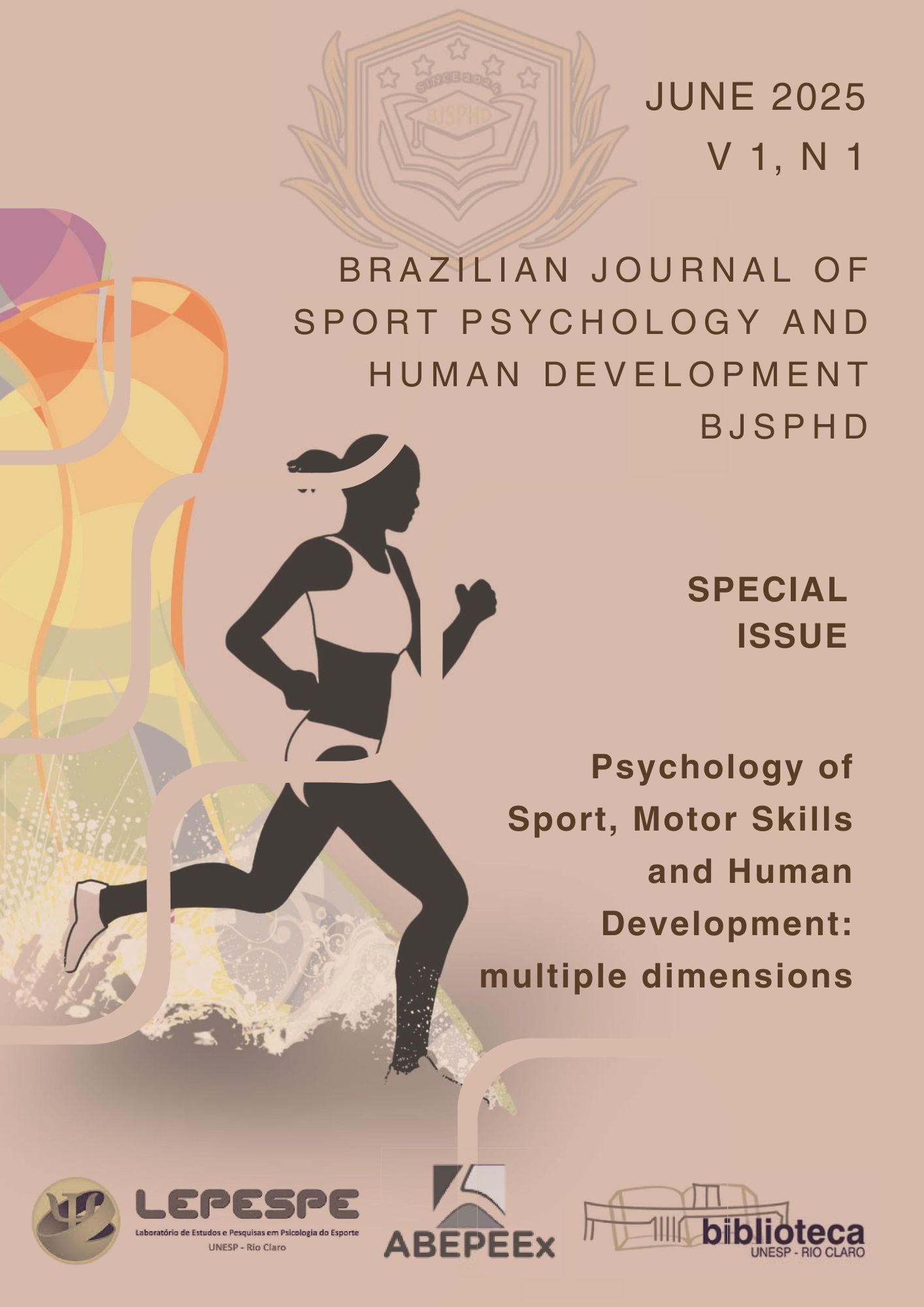RELATIONSHIP BETWEEN COACHES' INTERPERSONAL STYLE, COHESION, AND SUBJECTIVE VITALITY OF YOUNG BASKETBALL PLAYERS
DOI:
https://doi.org/10.5016/bjsphd.v1i1.19437Abstract
Within the framework of self-determination theory, the objective of this study was to study the relationships between the coach's perceived interpersonal style (autonomy-supporting and controlling) with the two dimensions of cohesion (task and social) and with an indicator of eudaimonic well-being (subjective vitality). One hundred and fourteen male and female basketball players (52.6% boys and 47.4% girls) participated, with a mean age of 14.68 years (SD = 1.71). Linear regression analyses showed that the autonomy-supporting style positively predicted task cohesion and subjective vitality, while the controlling style did not act as a significant predictor. These results highlight the importance of the coach's autonomy-supporting style on group and individual variables.





